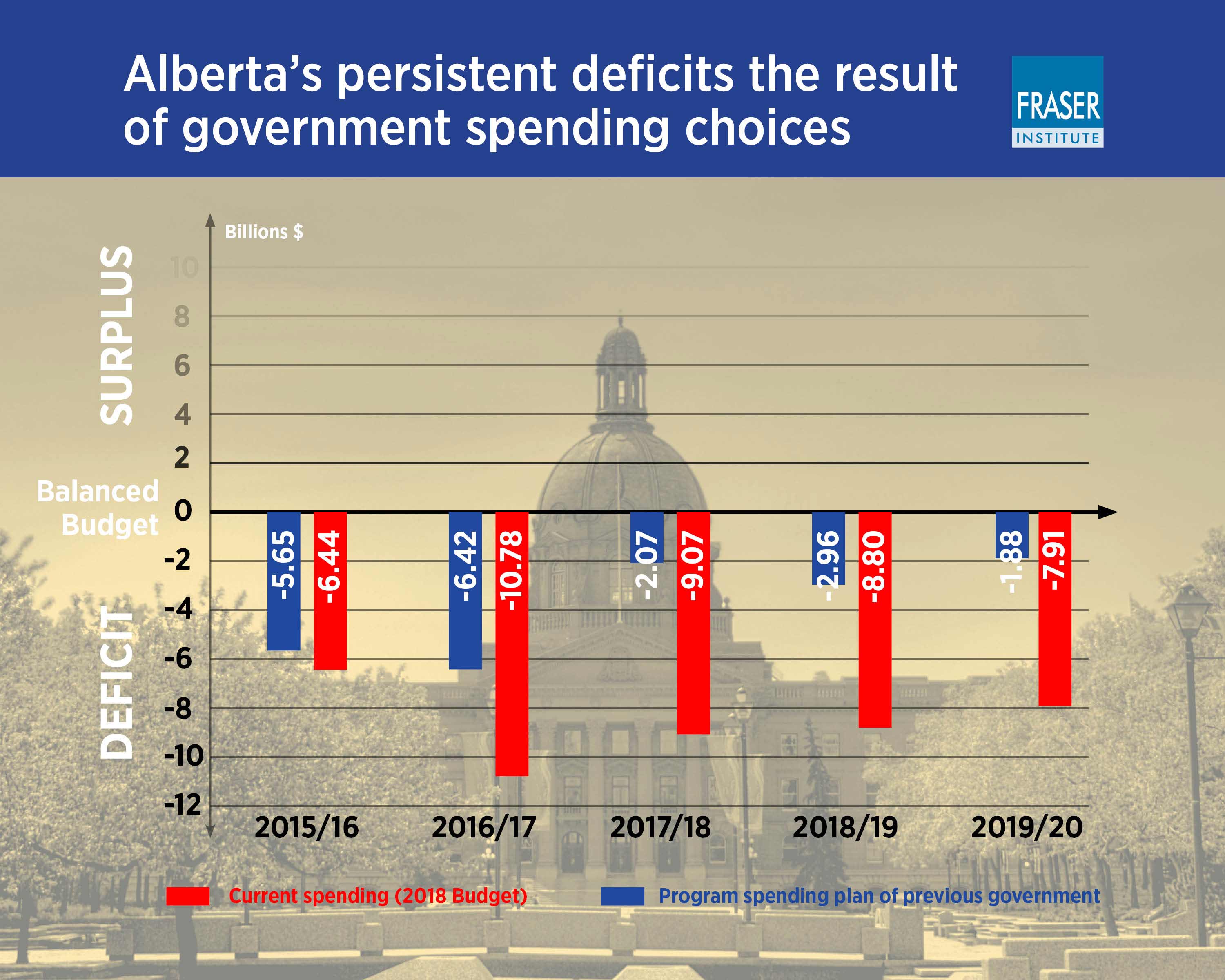Study
| EST. READ TIME 1 MIN.Government spending—not low oil prices—to blame for this year’s $8.8 billion deficit
Why Is Alberta’s Deficit Still So Big?
Main Conclusions
- The Government of Alberta has run nearly uninterrupted deficits since 2008/09 including deficits expected to average over $9 billion annually between 2016/17 and 2018/19.
- Alberta’s deficit today is much larger than the deficit the current government inherited (about $6 billion) when it took office in 2015/16.
- Blaming depressed oil prices or fiscal challenges that pre-date the recent recession for the size of Alberta’s deficits today is, at best, an oversimplification. Instead, spending choices made over the past three years are an important cause of the persistence of large deficits in Alberta.
- If the current government followed the spending plans laid out in the budget of March 2015, Alberta would have a deficit of just under $3 billion in 2018/19 rather than $8.8 billion.
- Assuming a common revenue forecast, if Alberta’s government had kept to the March 2015 spending forecast it would be on pace to shrink the deficit to under $2 billion by 2019/20 rather than nearly $7 billion. It would also be well positioned to balance the budget before its 2023/24 target.
- These spending choices have important implications for Alberta’s debt: net debt is forecast to reach nearly $40 billion by 2019/20. Our projections show that under the more restrained spending scenario, debt would be less than half as large—just under $15 billion.

Share
-

Steve Lafleur
Steve Lafleur is a research director at the Institute for Research on Public Policy, a former senior fellow of theFraser Institute and a former senior policy analyst at the Fraser Institute. He holds an M.A. in Political Science from Wilfrid Laurier University and a B.A. from Laurentian University where he studied Political Science and Economics. He was previously a Senior Policy Analyst with the Frontier Centre for Public Policy in Winnipeg and is a Contributing Editor to New Geography. His past work has focused primarily on housing, transportation, local government and inter-governmental fiscal relations. His current focus is on economic competitiveness of jurisdictions in the Prairie provinces. His writing has appeared in every major national and regional Canadian newspaper and his work has been cited by many sources including the Partnership for a New American Economy and the Reason Foundation.… Read more Read Less… -

Ben Eisen
Senior Fellow, Fraser Institute
Ben Eisen is a Senior Fellow in Fiscal and Provincial Prosperity Studies and former Director of Provincial Prosperity Studies at theFraser Institute. He holds a BA from the University of Toronto and an MPP from the University of Toronto’s School of Public Policy and Governance. Prior to joining the Fraser Institute Mr. Eisen was the Director of Research and Programmes at the Atlantic Institute for Market Studies in Halifax. He also worked for the Citizens Budget Commission in New York City, and in Winnipeg as the Assistant Research Director for the Frontier Centre for Public Policy. Mr. Eisen has published influential studies on several policy topics, including intergovernmental relations, public finance, and higher education policy. He has been widely quoted in major newspapers including the National Post, Chronicle Herald, Winnipeg Free Press and Calgary Herald.… Read more Read Less…
Related Topics
Related Articles
Federal government gets failing grade for fiscal transparency and accountability
By: Jake Fuss and Grady Munro
Alberta government’s AIMCo shakeup could mean government control of pension fund assets
By: Steven Globerman and Tegan Hill